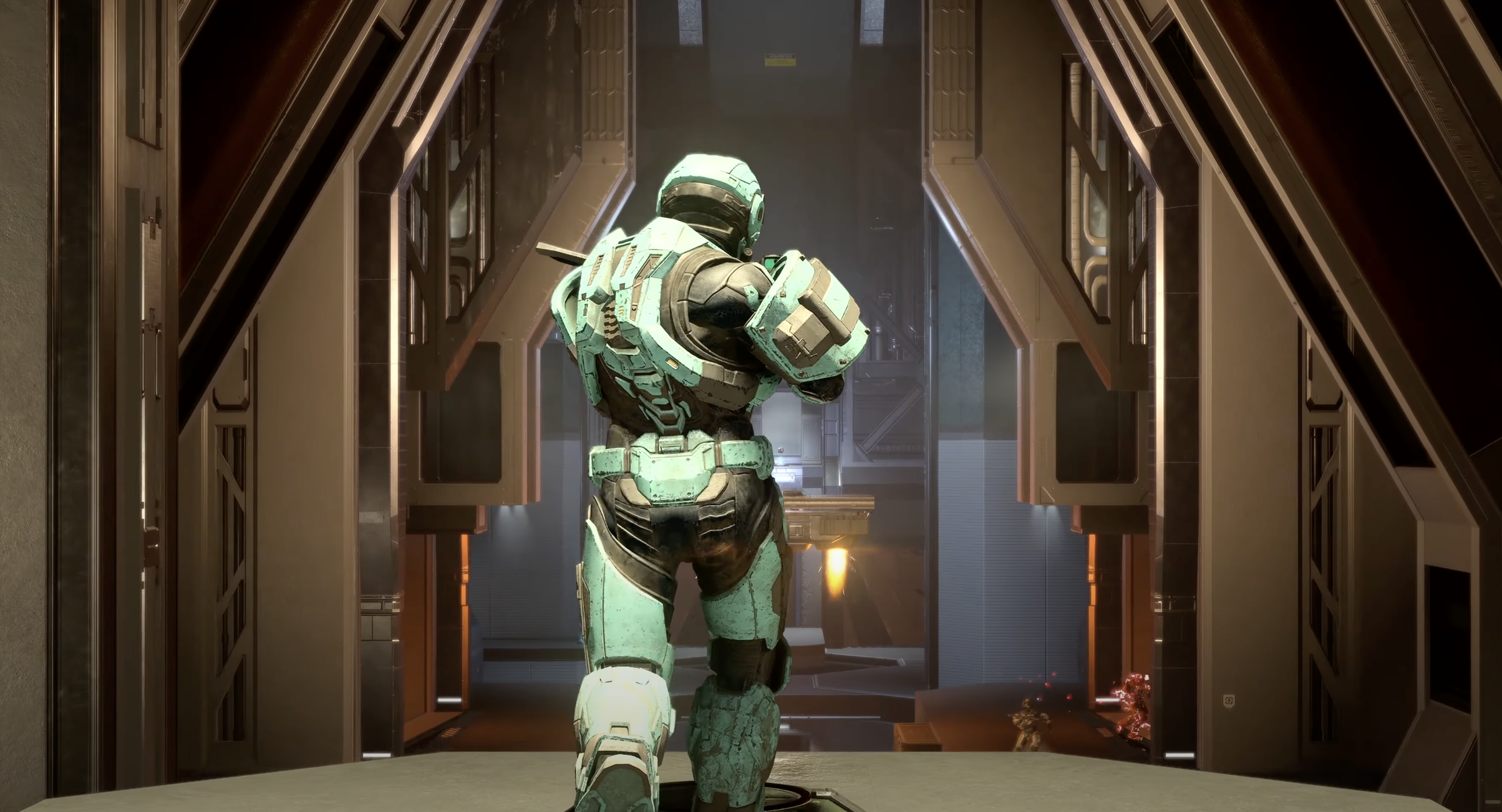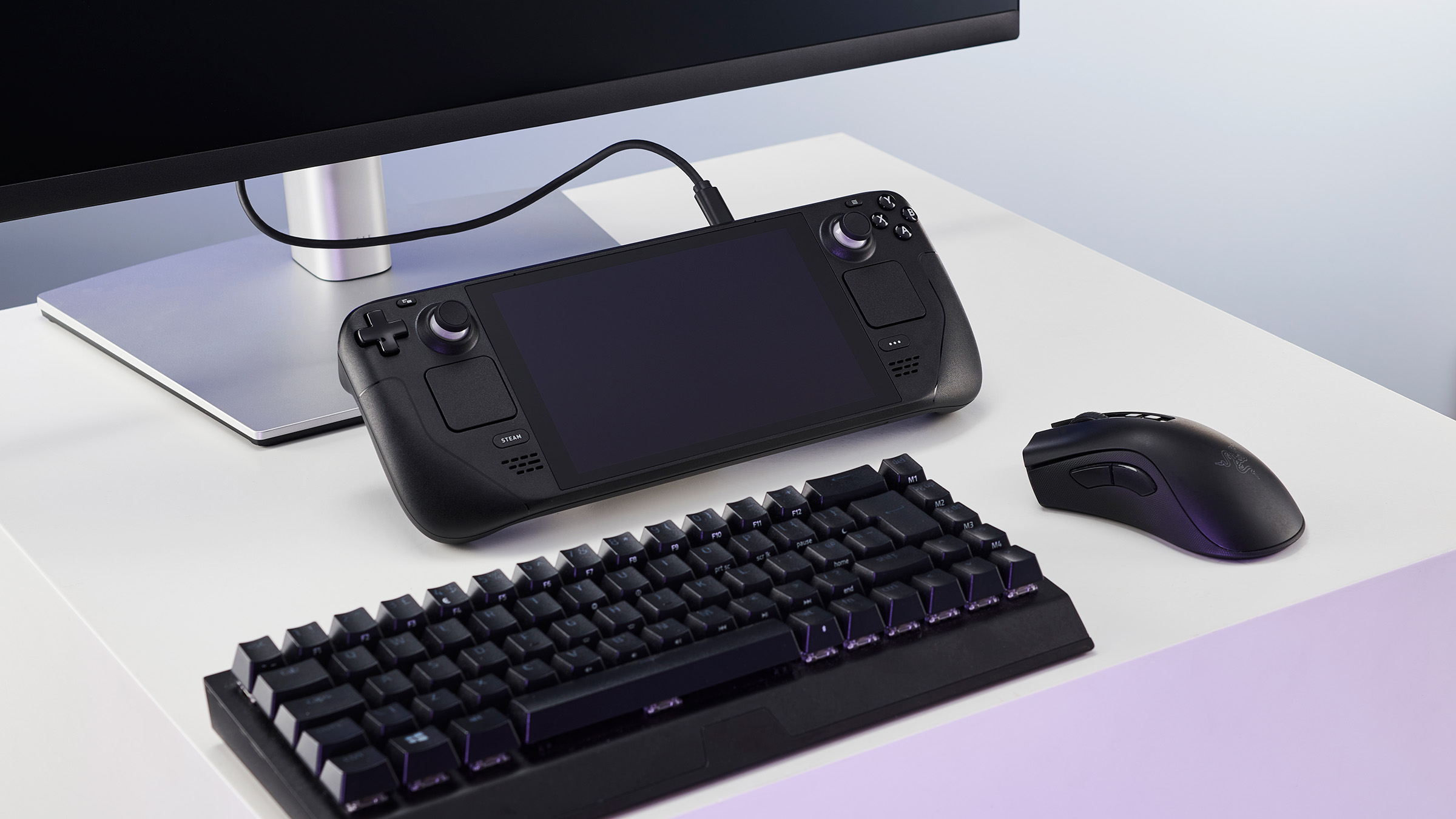The next Xbox will be the 'largest technical leap' yet but Microsoft is still planning to release exclusive Xbox games on other platforms
Very mixed messages from the Microsoft mothership.
You know all those Xbox rumours? The hot new hardware including a handheld, the idea that Microsoft is giving up on consoles altogether and releasing its exclusive Xbox games on third party platforms. Turns out it's true. Well, most of it.
Microsoft made a fairly comprehensive Xbox data dump yesterday including an official podcast on YouTube and an interview with Microsoft's gaming head honcho Phil Spencer. Takeaway number one is that Microsoft is committed to a full Xbox hardware roadmap that certainly includes a new console that will deliver the "largest technical leap" in the history of Xbox and may include a new handheld. Takeaway number two? Microsoft is indeed going to release some previously Xbox-exclusive titles on other platforms.
Let's deal with the hardware side first. Here's what Xbox president Sarah Bond has to say about that.
"We’ve got more to come. There’s some exciting stuff coming out in hardware that we’re going to share this holiday. We’re also invested in the next-generation roadmap. What we’re really focused on there is delivering the largest technical leap you will have ever seen in a hardware generation, which makes it better for players and better for creators and the visions that they’re building."
That is a pretty unambiguous promise to release another generational instalment of its conventional Xbox gaming console, for that console to be a major performance step over the existing Xbox Series X, and also to release a range of other Xbox devices, be that controllers or even a handheld console.
On the latter, Phil Spencer had a few interesting things to say in his interview with the Verge when asked directly if Microsoft is planning a handheld.

"Obviously we’re kind of learning from what Nintendo has done over the years with Switch, they’ve been fantastic with that," Spencer says. "So when I look at Steam Deck and the ROG and my Legion Go, I’m a big fan of that space."
Keep up to date with the most important stories and the best deals, as picked by the PC Gamer team.
But he also sees the challenges of making the handheld experience work. "We do have real work. One of the weak points in the experience on a ROG or the Lenovo [Legion Go] is Windows. How Windows works on controller input only on that kind of DPI, on a smaller eight- or seven-inch screen. That’s a real design point that our platform team is working with Windows to make sure that the experience is even better," he explains.
"I’m a big fan of handhelds," Spencer concludes, "I’m a big fan, but nothing to announce."
Obviously, Spencer is talking as much there about optimising Windows for handhelds as he is any actual Xbox handhelds. But if Microsoft had no plans for a handheld, it would have been easy enough to shut the conversation down. Instead, he has left the door wide open for a future handheld. Will it happen? Time will tell, but these new comments strongly suggest Microsoft is working on something even if there's no guarantee it will actually be released.
As for the software side of the equation, Microsoft announced in the official podcast that it will indeed release some currently Xbox-exclusive titles on other platforms. "We’ve made the decision that we’re going to take four games to the other consoles,” Spencer said.
Which games, you ask? Frustratingly, Microsoft will only say that two of the titles are community-driven games, the other two being "smaller" games. But the rumour mill currently suggests that the two "community-driven" games are Hi-Fi Rush and Pentiment, while the lesser titles are Sea of Thieves and Grounded.
Going by the Verge interview, the release of these four games on non-Xbox consoles is something of an experiment. Microsoft is gathering data. In the end, whether it decides to go further down the path of releasing Xbox titles on other platforms will depend on what makes more money.
"I’m going to learn about our partnership with other platforms," Spencer said. "I’m going to learn about what happens with our players. I think it will benefit the games that we’re putting there and that’s a good thing for us, and if we can use other platforms that have gamers and maybe some of those gamers don’t want to play it on PC and don’t want to play on Xbox and that can help us grow our business, I think that’s great. If the net result is that other things are punitive to the Xbox platform and try to limit our growth, then we’ll have to think more carefully about how we support those other platforms."

Steam Deck OLED review: Our verdict on Valve's handheld.
Best Steam Deck accessories: Get decked out.
Steam Deck battery life: What's the real battery life?
Best handheld gaming PC: What's the best travel buddy?
So, what to make of all this? Overall, Microsoft doesn't seem to quite know what to do with Xbox. In the past, it has arguably made the mistake of thinking consoles are all about hardware, while Sony and Nintendo keep proving that it's great games that make a console successful, not having the fastest hardware on paper.
These new reveals seem to indicate Microsoft both realises that it's the games that matter, hence the experiment with releasing Xbox games on other platforms, while at the same time doubling down on making the biggest leap ever with its next-gen Xbox.
Maybe Microsoft is big enough and wealthy enough to bet on everything, to make that uber console and even move into the handheld space while also leaning heavily into the games themselves. But we can't help thinking that what Microsoft and the Xbox really needs is focus and clarity of purpose.
As it is, there's a whiff of the usual sprawling Microsoft corporate hegemony about all this. Not only is Microsoft promising more hardware, more performance, more devices, it also wants to cash in on third party platforms, to access the competition's customer base of gamers. It is, in the end, all a bit cakeist.

Jeremy has been writing about technology and PCs since the 90nm Netburst era (Google it!) and enjoys nothing more than a serious dissertation on the finer points of monitor input lag and overshoot followed by a forensic examination of advanced lithography. Or maybe he just likes machines that go “ping!” He also has a thing for tennis and cars.

